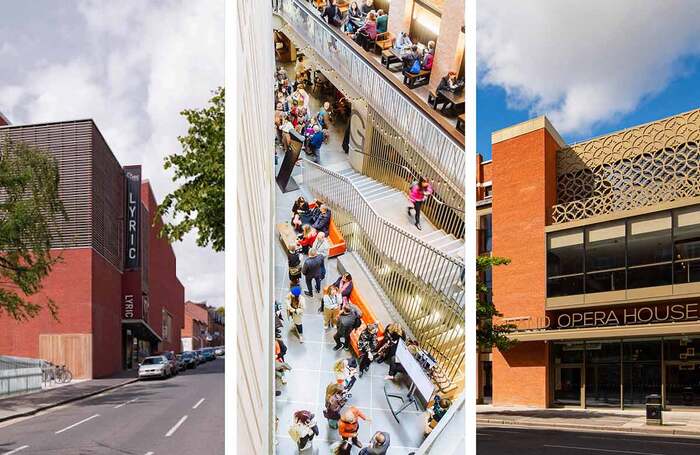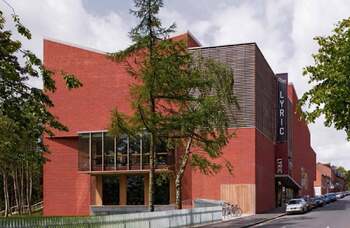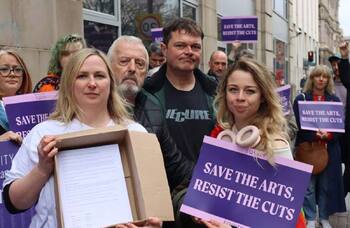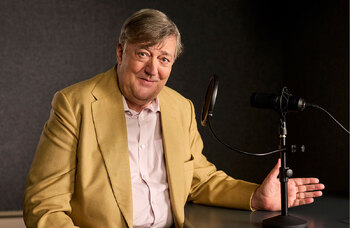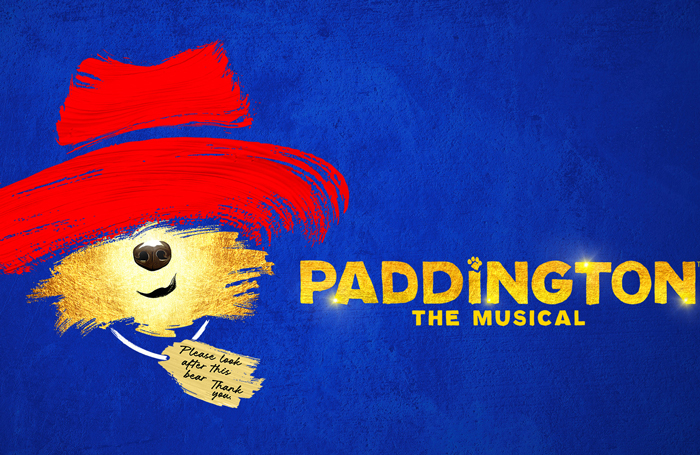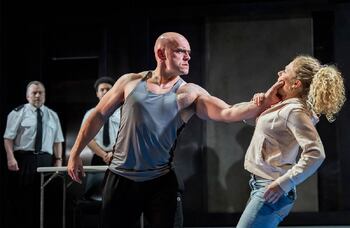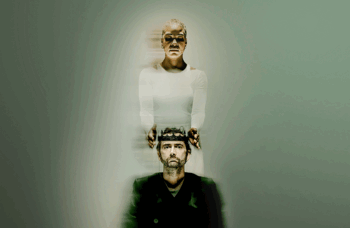Northern Ireland performances fall more than 25% in year – Arts Council figures
The number of performances in Northern Ireland fell by more than a quarter (27%) between April 2023 and March 2024, causing earned income and box-office receipts to decline during the same period.
The findings are part of the latest Annual Funding Survey by the region’s Arts Council.
Taken as a whole, arts activity fell by 22% across the wider sector, with small-scale organisations reporting a reduction of 34% in their activities.
Box-office income fell by 6.3% as audience numbers dropped by 10% to 1.6 million. Income from all sources was down 2.65% year-on-year.
The findings provide more evidence of the parlous state of arts funding in Northern Ireland, where per capita spending is just £5.07, compared with £10.51 in Wales and £21.58 in the Republic of Ireland.
The Arts Council’s budget for 2024-25 showed a marginal increase of £500,000 to £10.2 million.
The latest report comes on the back of Arts Council analysis of working and living conditions for Northern Irish artists, published in June, that found mean arts earnings of £11,200, amounting to an 11% cut in income since 2010.
There was some positive news, however, with a 31% increase in income for theatre organisations, although that was offset by an overall jump in costs of 18%, with programming costs rising by almost a quarter (23%).
“The figures are challenging”, said Arts Council of Northern Ireland acting director of strategic development and partnerships, Javier Stanziola.
“Those for drama show better news, but the cost-of-living crisis is affecting the arts sector and the situation for artists in Northern Ireland is precarious.”
Continues…
Other findings in the survey, conducted with the Arts Council’s 83 annually funded clients, suggest that employment opportunities “look to be slowing down, with a further contraction in contract/freelance workers employed on a full-time basis.”
Total income for those clients amounted to £24.5 million, compared with £28.5 million for the 92 annually funded organisations in 2022-23.
Meanwhile, the gender imbalance has continued to widen, with the number of women increasing by 30% to account for 60% of the total workforce, while male workers fell by 7% to 38%. There was a small rise in non-binary workers to 1% of the total.
For Stanziola the current situation is “not sustainable”.
“The development of new talent and theatre wouldn’t happen without public funding,” he said. “It’s important to make the case for innovation and risk-taking, and the contribution the arts make to health, education, job creation, community development and other social benefits.
“We have to make the business case for the arts. For every £1 the Arts Council invests, clients attract £1.35 from other sources. We need to build stronger financial sustainability strategies and develop a mixed-economy funding model.”
Production News
Recommended for you
Production News
Recommended for you
Most Read
Across The Stage this weekYour subscription helps ensure our journalism can continue
Invest in The Stage today with a subscription starting at just £7.99
